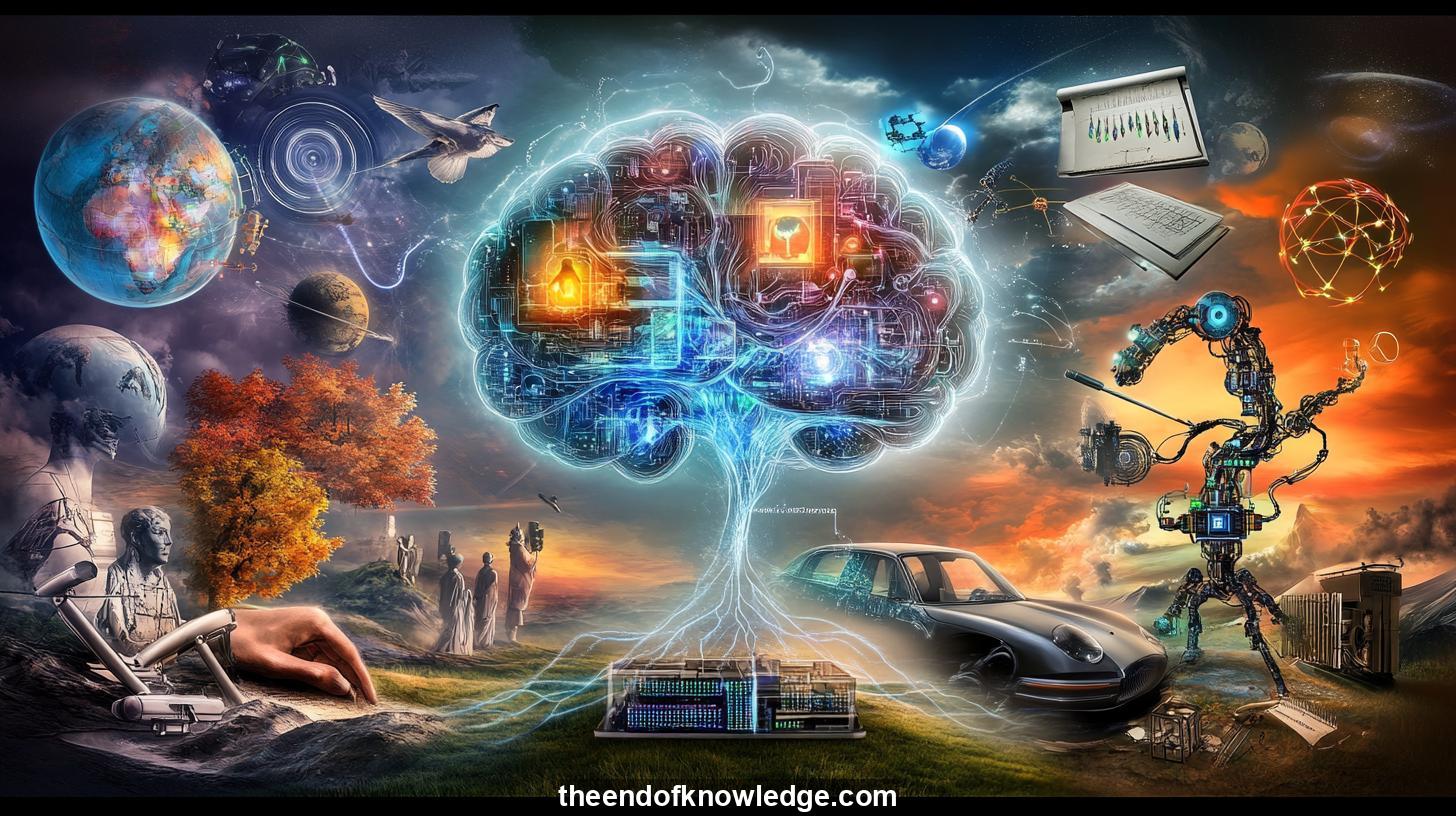 >
>
Concept Graph, Resume & KeyIdeas using DeepSeek R1 :
Resume:
discusses the evolution and current state of artificial intelligence (AI) through an interview with Ramon Lopez, a pioneer in the field. Lopez shares his journey in AI, starting from his early work in robotics and pattern recognition in the 1970s to his current research. He emphasizes the importance of understanding AI's limitations, particularly in replicating human semantics and common sense. Lopez highlights the need for hybrid systems that combine data-driven approaches with symbolic reasoning to achieve more robust AI. He also touches on ethical considerations, advocating for a multidisciplinary approach to AI education that includes humanistic and ethical training. The conversation concludes with reflections on the future of AI, emphasizing the balance between technological progress and ethical responsibility.30 Key Ideas:
1.- Ramon Lopez began his AI research in the 1970s, focusing on robotics and pattern recognition.
2.- Early AI developments were influenced by neuroscience and the study of human cognition.
3.- Lopez emphasizes the importance of hybrid systems combining data-driven and symbolic approaches.
4.- Current AI systems lack true understanding and semantics, limiting their ability to replicate human intelligence.
5.- Ethical considerations in AI development are crucial, particularly in applications like autonomous vehicles.
6.- The need for multidisciplinary education in AI, including ethics and humanistic perspectives, is highlighted.
7.- Lopez discusses the potential of AI in creative fields like music and art but notes limitations in true creativity.
8.- The integration of neuroscience and AI could lead to more advanced systems but is still in its infancy.
9.- Ethical regulation of AI is necessary to prevent misuse and ensure responsible technological advancement.
10.- Lopez stresses the importance of balancing technological progress with ethical responsibility.
11.- AI systems currently lack the ability to understand context and semantics, limiting their practical applications.
12.- The development of AI requires collaboration across disciplines, including neuroscience, philosophy, and ethics.
13.- Lopez reflects on the future of AI, emphasizing the need for systems that can reason and explain their decisions.
14.- concludes with a call for ethical AI development to ensure a positive impact on society.
15.- Lopez advocates for a human-centered approach to AI, prioritizing human well-being and values.
16.- The importance of education in shaping the future of AI is repeatedly emphasized throughout the discussion.
17.- Lopez discusses the potential risks of AI, including misuse in surveillance and autonomous weapons.
18.- The need for transparency and explainability in AI systems is highlighted as essential for trust and accountability.
19.- Lopez reflects on the historical development of AI, noting significant progress but also ongoing challenges.
20.- underscores the importance of regulating AI to ensure it serves humanity's best interests.
21.- Lopez discusses the role of AI in creative processes, noting both achievements and limitations.
22.- The integration of AI with neuroscience could revolutionize fields like medicine and education.
23.- Lopez emphasizes the need for a balanced approach to AI development, considering both technological and ethical dimensions.
24.- highlights the importance of public awareness and engagement in AI-related discussions.
25.- Lopez concludes by stressing the potential of AI to drive positive change if developed responsibly.
26.- The discussion touches on the ethical implications of AI in areas like privacy and job displacement.
27.- Lopez advocates for international cooperation in regulating and guiding AI development.
28.- explores the potential of AI in addressing global challenges like climate change and healthcare.
29.- Lopez reflects on the importance of maintaining human agency in an increasingly automated world.
30.- concludes with a hopeful outlook on AI's future, emphasizing the need for wisdom and responsibility.
Interviews by Plácido Doménech Espí & Guests - Knowledge Vault built byDavid Vivancos 2025